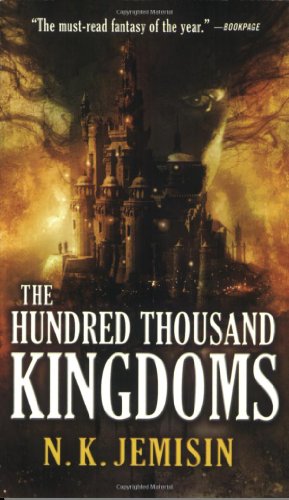The Gods Themselves

I tend to upset many of my more conventional atheistic friends when I point out to them how much being an atheist depends on faith. Faith, they say, has to do with superstitions. But I tend to agree with Sam Harris, who writes in The Moral Landscape that faith is not defined by what one believes in, but that one believes in something.
I believe that the universe is a predictable (no? how about this one then?) place (within the laws of probability that appear to govern quantum mechanics), whose laws human beings can discover through observation. I agree that such a place doesn’t necessarily exclude what some people might call a deity, but it would be at most a powerful being whose motives - being inhuman (like that one?) - are suspect at best.
There are a few authors who attempt to tackle the problematic relationship between people and deities. Philip Pullman in His Dark Materials describes a powerful being who is responsible for a lot of human misery by telling people mean things to do to other people. Clearly it is right to go to war against such a being, as well as his human servants. Jay Lake’s deity in Mainspring is more distant, a representative of Newton’s orderly clockwork universe who occasionally intervenes so that things continue moving as intended - the classic prime mover.
Roger Zelazny’s deities are more personal; often they walked among mortals, incarnations with supernatural powers. In Lord of Light Zelazny casts the idea in terms of access to powerful technology that is denied to others - a re-telling of the Prometheus myth. Neil Gaiman’s deities in American Gods and Anansi Boys also walk amongst mortals, but their survival depends on human belief, a kind of reverse solipsism. They use their natures and powers to persuade or coerce humans to believe.
N.K. Jemisin’s book The Hundred Thousand Kingdoms is my first of the Hugo nominated reads this year, mostly because it was my last of the Nebula nominated reads, and the only one of two Nebula nominated novels that also got the nod for the Hugos. Kingdoms is the first of a series, it seems, but it is a self-contained novel, concerning the relationship between one young woman and several very real and personal deities.
Yeine is yanked from her comfortable and predictable existence as a princess of the Kingdom of Darre to go to the empire’s capital, where her estranged grandfather nominates her as one of his heirs. From the beginning she realizes that her days are numbered, but she intends to use her limited time to find out who murdered her mother, and perhaps exact a revenge. She soon discovers that she herself is part of a much deeper and older plot.
The deities that serve the Arameri, the ruling clan, are an ever-present reality. Yeine describes them as weapons. Sieh, one of these deities, agrees with her. He says he prefers that word to calling them slaves. After all, slavery is forbidden in the Hundred Thousand Kingdoms. The other deity with whom Yeine has a rather more intimate relationship, Nahadoth the Dark Lord, is not merely philosophical about his position. Since he was the leader of the rebellion that enslaved them, he also bears the brunt of human indignity heaped on them.
The story is far more complex than my two-paragraph synopsis, of course. Jemisin’s stylistic competence shines, as she writes from Yeine’s point of view - a Yeine who has already died, and is now retelling her story to someone who is unidentified for much of the novel. The plot weaves back and forth, galloping along with events one moment, and returning to contemplate something in the past the next. It is not conventional, but also not laborious to read.
Yeine and the deities are well fleshed out characters. Yeine’s human compatriots are less so, serving as archetypal stand-ins for moral failings and moral strengths. It’s a curious reversal of roles, but then the story turns out to be a reversal of conventional Christian theology.
It has been a promising start to my Hugo reading this year. It’s high fantasy, no elves, nifty ideas, and food for thought. Highly recommended, whether you’re voting for the Hugos or not.

0 Comments:
Post a Comment
<< Home